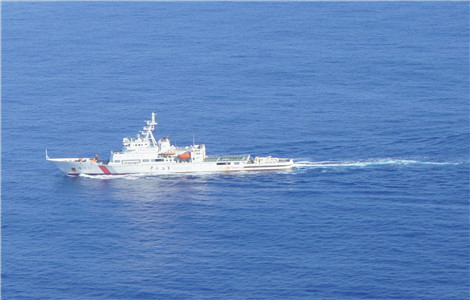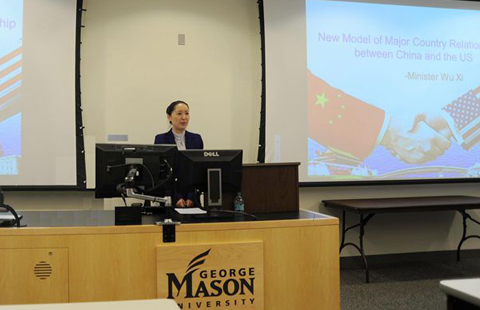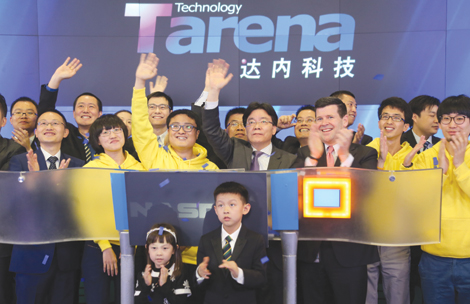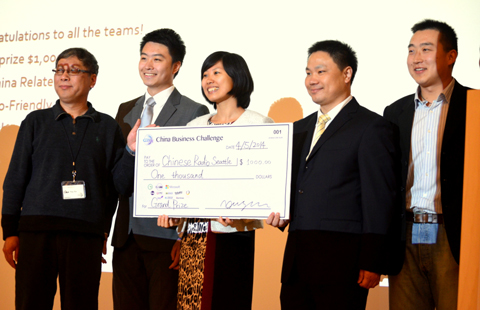Tom Klitgaard: Cultivator for US-China Relations
Updated: 2014-04-08 08:48
By Qidong Zhang in San Francisco (chinadaily.com.cn)
|
|||||||||
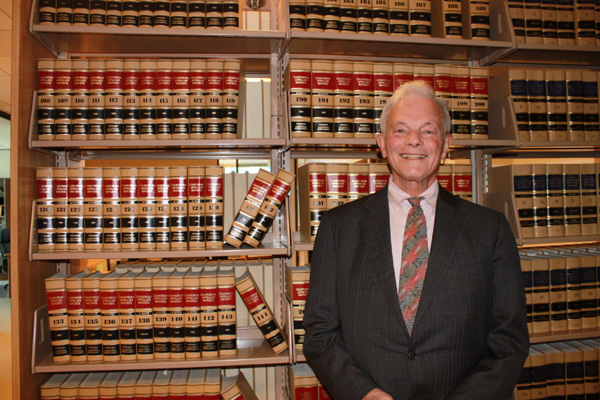 |
| Tom Klitgaard |
One day in 1985, a Red Flag limousine pulled up in front of a US delegation that had just arrived at Hongqiao International Airport in Shanghai. The driver got out, and put up a large name board for "Mr. Thomas Klitgaard", one of the delegation members. They soon found out the car had been sent by the mayor of Shanghai, Wang Daohan, especially to pick up Klitgaard.
At the time, Klitgaard, then an attorney and partner at Pillsbury, Madison & Sutro, was one of the first Americans who went to Shanghai with US Senator (then Mayor) Dianne Feinstein in 1980 to establish a sister-city relationship between Shanghai and San Francisco, only a few months after the US and China normalized diplomatic relations.
"Dianne Feinstein thought that the development of a special relationship with Shanghai would be a tremendous benefit to San Francisco and that normalization presented opportunities for San Francisco and the United States that were going to happen only once in a life time, so she initiated the trip of about 20 people to go to China with her to open a new page in history," Klitgaard said.
Describing Feinstein as "perceptive, exceptionally smart and extremely innovative in developing cultural, governmental and trade relations with Shanghai and China, he said the relationship started with great chemistry.
"Not long into the conversation and a few visits, we found Jiang Zemin, then the mayor of Shanghai, and Dianne thoughtfully and energetically moving forward on significant projects based on mutual understanding and respect," Klitgaard said.
"Before our trip, the China side was also evaluating the possibility of establishing sister-city relationships with Los Angeles and Chicago. Dianne told them, 'You can't have two sisters.' The China side realized how serious she was and then joined with San Francisco in a memorandum of understanding to establish the first sister-city program between the US and China"
Two important things happened during that trip, according to Klitgaard, who grew up in the San Francisco Bay Area. One was the establishment of a Chinese consulate in San Francisco, which was proposed by Feinstein; the other was a management training program for mid-level up and coming Shanghai business managers proposed by then Shanghai Mayor Wang Daohan.
"China essentially had no friends at the time Dianne's view was to be friends with China, make contacts, and introduce the business and culture of San Francisco to Shanghai, and of Shanghai to San Francisco, especially since the two cities had shared spectacular histories in the past,'' he said.
Klitgaard became responsible for the training program, the first between the US and China since 1949, and administered it for more than 20 years with the help of many members of the San Francisco-Shanghai Sister City Committee.
"Dianne had formed the committee, which included many prominent and successful members of the local Chinese community, including Gordon J. Lau, a Chinese-American member of the San Francisco Board of Supervisors who became kind of an icon in Shanghai for his work in building bridges between the two cities, as well as many local American business and cultural leaders, as part of developing relations with China and Shanghai. I was one of the founding directors of the committee," Klitgaard said.
Under an MOU signed by Jiang and Feinstein, Chinese managers would be sent to San Francisco to study economics and business management, and the US side would send professors and business professionals to Shanghai to provide instruction on those and other subjects at universities in Shanghai. This was to include hands-on internship programs for the Chinese managers at businesses in California and elsewhere in the US at the end of the formal instruction.
The program trained almost 100 Chinese managers selected by the Shanghai Municipal Government and later by China's State-owned Assets Supervision and Administration Commission, Pudong Branch. Many of the graduates have become high ranking officers in the Chinese government and state corporations. They were pioneers in developing a mutual appreciation and understanding of the underlying business cultures of San Francisco and Shanghai and ,in a broader sense, of the US and China. They interned at businesses of all sizes and were exposed to the American entrepreneurial spirit in Silicon Valley and elsewhere.
Klitgaard's great-grandfather was a Danish sailing-ship captain engaged in the China trade in the 1860s and 1870s. His father was a merchant marine engineer on tankers transporting kerosene to China in the 1920s. A graduate of the University of San Francisco and of the Boalt Hall Law School at the University of California at Berkeley, Klitgaard began his legal career as a law clerk for Supreme Court Justice William O. Douglas. He started a law practice to advise US businesses interested in China in the 1980s with Pillsbury, Madison & Sutro, and helped to open the China market to businesses such as Pacific Telesis (the international subsidiary of Pacific Bell) and Tandem Computers in the 1980s and 1990s.
His interest in China was so profound that he made it a condition at Pillsbury that the firm supports him and his wife Patricia's study of the Chinese language. Today on his desk are many Chinese proverb study sheets with pictures, such as "Shou Zhu Dai Tu" (Guard the Tree, Wait for the Rabbit), "Bei Gong She Ying" (An illusory snake in a goblet).
"I use Chinese idioms from time to time when communicating with my Chinese friends and in arbitrations and mediations to help keep things in perspective, keeping in mind China's ancient wisdom. The proverbs and idioms help everyone relax and concentrate on substance and think about reality," Klitgaard said.
He has been teaching a course on Asian legal systems for the last nine years at the University of San Francisco Law School that focuses on China, Hong Kong, Taiwan, South Korea and elsewhere in Asia.
Klitgaard also serves as vice-president of the Chinese Culture Foundation in San Francisco, which has engaged over 60,000 people in intercultural discovery of China through art and education. Mabel Teng, the foundation's executive director, said Klitgaard is a champion and trail blazer for the foundation.
"He was elected chairman of the board of directors of the foundation in the 1980s, and has returned to the board as the vice-president to strategically shape the organization's future. Tom is truly the guardian angel of the Foundation and my role model," Teng said.
She said that as one of the first non-Chinese-Americans who have served on the foundation board, Klitgaard's effective leadership has contributed to the organization's transformation to being a highly respected leader in intercultural discovery through art and education.
"One of last year's milestones was to spark discovery on national and international levels. The exhibitions of 'the Moment for Ink,' 'WOMEN我们, and 'Curiosity Box' represent a remarkable collaboration of arts organizations to connect the City with Miami, New York, Brazil, Shanghai, Hangzhou and Hong Kong," Teng said.
In 2011, the Shanghai Municipal Government presented Klitgaard its Magnolia Silver Award in a ceremony at the city's Xi Jiao State Guest House. Established in 1989, the award acknowledges the most outstanding foreigners who have made significant contributions to the city of Shanghai. The city recognized him for his "valuable support to Shanghai's development and outstanding contributions to [our] friendly cooperation."
Among the 46 award recipients from 19 countries, Klitgaard was the only attorney who received the award. The other fellow Americans included chairman of the board of directors of Dell (China) Co. Ltd, chairman of Shanghai General Motors Co Ltd and managing director of Greater China for the Walt Disney Co.
Klitgaard is now a partner in the San Francisco law firm of Dillingham & Murphy, LLP, where he does commercial and intellectual property litigation. He is also domestic and international arbitrator and mediator and an adviser on doing business with China.
Most Viewed
Editor's Picks
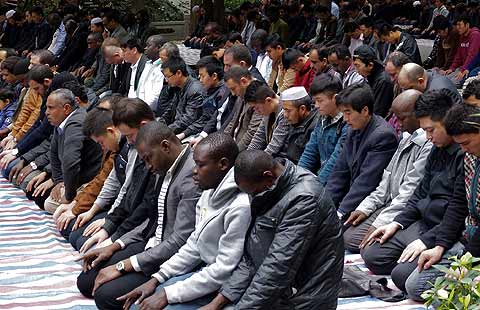
|

|

|

|

|

|
Today's Top News
Chinese minister cautions the United States
Gala celebrates Chinese dreams
Museum teaches kids about Qingming
Latest signals fuel hope
Australia also detects suspicious pulse signal
Kidnappers make 1st phone call to family of Chinese tourist
Kidnapping scares Chinese tourists
Manhattan fights for Chinese tourists
US Weekly

|

|
